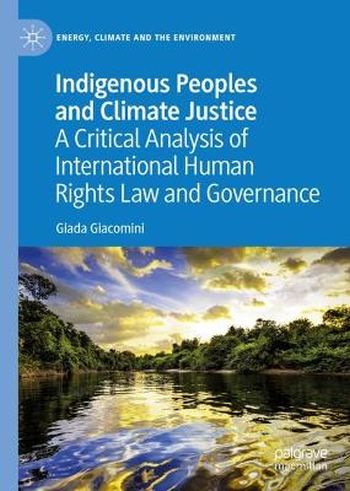
This book provides a new interpretation of international law specifically dedicated to Indigenous peoples in the context of a climate justice approach. The book presents a critical analysis of past and current developments at the intersection of human rights and international environmental law and governance. The book suggests new ways forward and demonstrates the need for a paradigmatic shift that would enhance the meaningful participation of Indigenous peoples as fundamental actors in the conservation of biodiversity and in the fight against climate change.
The book offers guidance on a number of critical intersecting and interdependent issues at the forefront of climate change law and policy – inside and outside of the UN climate change regime. The author suggests that the adoption of a critical perspective on international law is needed in order to highlight inherent structural and systemic issues of the international law regime which are all issues that ultimately impede the pursue of climate justice for Indigenous peoples.